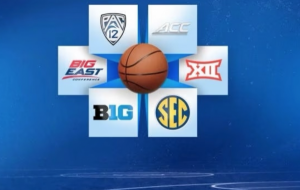Bible’s priority is love of God
4 min readI’m ninety years old and a retired Christian minister. I retired twenty years ago when I was seventy years old.
As an ordained minister I attended two seminaries, receiving a Master’s Degree from one and a Doctorate of Religion from the other.
I’ve served ten churches in three different denominations: Nazarene, Methodist and United Church of Christ. (UCC)
Since retirement I preached three years (once a week) in a retirement complex in Redlands, and two years in a local mission in San Bernardino.
From 1980-2015 I conducted a Bible study class in the Highland Congregational Church and the Highland Senior Center.
I have a thorough knowledge of the contents of the Bible and also its structure. Two views have dominated my Biblical knowledge. First, is the great sum of contradictions in the Bible and second, the even greater sum of its priorities.
The objective of this article is to deal with the second emphasis. A clarification of the Bible’s priorities. I am convinced that the number one priority of the Bible, from Genesis 1:1 through the Old Testament and through the entire New Testament is the LOVE OF GOD. My favorite Gospel Song is entitled, “The Love of God.” The first verse sums up my insight into God:
“The love of God is greater far than tongue or pen can ever tell. It goes beyond the highest star and reaches to the lowest hell. Were every stalk on earth a quill and every man a scribe by trade. Could we with ink the ocean fill, and were the skies of parchment made to write the love of God above would drain the ocean dry; Nor could the scroll contain the whole, though stretched from sky to sky. O love of God, how rich and pure! How measureless and strong! It shall forevermore endure the saints’ and angels’ song.”
An auxiliary to the truth in this song is the substance in the Bible. The narratives, the history, the choices, the myths, the allegories, the people’s lives, the contradictions are all given to define and clarify the love of God.
It covers the beginning of life until the continuation of life beyond.
Rabbi Harold Kushner, the author of the best seller, “When Bad Things Happen to Good People;” is also a Biblical scholar. He states “To understand the Bible; it must be viewed as metaphorical.”
Recently several Israeli scholars declared that the entire Old Testament is plagiarized from Egyptian history.
The Muslim holy Koran contains the lives of 26 Biblical characters; the entire third chapter in the Koran is about Mary, the mother of Jesus. The Koran also endorses Joseph the husband of Mary. Jesus is accepted as a holy messenger along with Muhamad.
As mentioned earlier, I view the entire Bible as giving insight and understanding into the nature and love of God. For clarification I have cataloged my views into five themes. 1) Eternal Creator. 2) Eternal Challenge. 3) Eternal Commitment. 4) Eternal Compassion and 5) Faithful Continuation.
The following comments are given to support the Love of God.
ETERNAL CREATOR. William Paley, historical theologian and scientist gives us the watchmaker theory. A watch is not the product of accident. It is the product of design. So is our earth and universe. The law of gravity is evidence of order and design. Genesis 1:1 does not answer the question of how and when. “In the beginning Elohim (God) created the heavens and the earth. Rabbi Johnathan Cahn, in his book, “The Books of Mystery,” reminds us that the word Elohim is a plural noun. The significance being that creation had many facets to it.
Astronomers date the universe between 13-15 billion years old. Our earth between 3-5 billion years old. God created and all within it; including all facets of animal and human life plus all vegetation.
Perhaps the greatest element of creation is the ability for change and adjustment. All the product of God’s creation.
ETERNAL CHALLENGE. The Bible is filled with admonitions for we humans to be children of God. Again, and again we are challenged to believe, to love, to obey, and to follow His will. These tenets are found in the holy literature of all religions.
The characters in the Bible are examples. Adam, Noah, Abraham, Moses, David, Paul, Peter, Mary, Ester and Hannah, to name a few.
ETERNAL COMMITIMENT. God’s commands and desires for us are not ambiguous. They are definite and incisive. We are to love God with all our heart, soul, mind and strength. And our neighbors as ourselves.
Many theologians and scholars have added another challenge. “The only acceptable response we can give to God is Gratitude.”
ETERNAL COMPASSION. In one sense this quality is the most inclusive benefit that God gives to His children. To watch and care for us; to encourage and to be with us; to understand and guide us; adequate grace is available to us; His mercy is everlasting, AND “Though we walk through the valley of the shadow of death, He will be with us.”
ETERNAL CONTINUATION. The afore mentioned Rabbi Jonathan Cahn gives an answer to his question, “Who is God?” The answer is the tomb. The empty tomb.
That promise is for everyone. For all of us. The word for it is UNIVERSALISM….
The song which has a concise declaration. “God has promised strength for our day, unfailing sympathy and undying love.” AND THE PROMISE OF LIFE EVERLASTING.
Amen. Selah. So be it.








